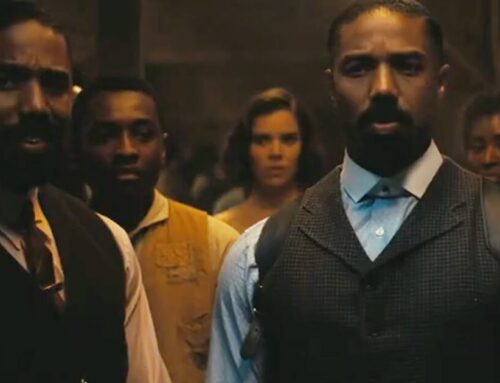The best movie I’ve seen all summer is LIFE ITSELF, a documentary about one of the most formidable movie critics in history– and certainly the most famous, winner of the Pulitzer Prize, and conqueror of cancer: Roger Ebert. The disease killed him, but Roger won. At the beginning of his memoir, Roger wrote, “I was born inside the movie of my life…it continues to entertain me.” By the end, he joyfully shared that death was just a part of life, and that he “was so glad he didn’t just keel over and miss it!”
LIFE ITSELF is heartbreaking and bold, funny, and relentlessly compelling. Filmmaker Steve James (HOOP DREAMS) used Roger’s own 2011 memoir as a guide, and describes the tale as “a life not in three acts, but seven!” From his modest Catholic upbringing in the midwest, his colorful stint as a newspaper reporter at the Chicago Sun-Times, his glamorous TV career as a movie critic, to his mingling with movie stars on the Riviera, and finally a monumental and very public battle with cancer, Roger Ebert’s life story is tremendously entertaining and moving, and we have a front row seat.
James manages to get his arms around the whole man– and Roger was big in every way. He was overweight, had an enormous intellect, and huge impact as a critic through his groundbreaking TV show with Gene Siskel. The two critics sat in the balcony every week, dueling to the death, thumb to thumb, over movies. The outtakes from SNEAK PREVIEWS and AT THE MOVIES featuring hilariously nasty exchanges, reveal a love/hate relationship akin to intense sibling rivalry.
The film moves back and forth in time, spinning off from the present to every facet of Ebert’s personal and public life. He was a brilliant teller of tales and bawdy jokes; he fought a definitive battle with alcohol, wrote a raunchy skin flick (“Beyond the Valley of the Dolls ), championed little known filmmakers (Martin Scorsese!) and showed regular moviegoers and critics alike, in clear accessible language–not only what to see– but “how” to see it.
James gathers a diverse and impressive array of accomplished filmmakers and critics, colleagues and chums: filmmakers Martin Scorsese and Werner Herzog, N.Y. Times critic A.O. Scott, legendary sportswriter Bill Nack who all weigh in on Ebert’s intellect and audacity, as well as what he meant to them as a person. Late in life, Roger made a brilliant match in Chaz Hammelsmith whom he met at an AA meeting. Her radiant calm, and ceaseless joy seems to have tempered the man– and just in time; the two would steer a brutal course through disfiguring cancer of the thyroid and salivary glands, which left Roger without a lower jaw. Indeed, their strength together, and the grace and courage displayed under despicably cruel circumstances, inspires you, even as you watch the struggle.
As James says, “it wasn’t our intent, but as it turned out, we were basically also doing a film about how to face death,” and Roger insisted the film tell the whole unvarnished truth: “It would be a major lapse to have a documentary that doesn’t contain the full reality. I wouldn’t want to be associated. This is not only your film.”
The filmmaker spent only 5 months with Ebert who died in April of 2013, but has given us a full-on portrait of a man who took a “leave of presence” enlightened and uplifted. Though cancer robbed him of his ability to speak, it didn’t stop his voice which was, in fact, amplified by the internet, and now this biographical film. The disease also seems to have served as a kind of portal to a deeper understanding in this most discerning of human beings. Chaz Ebert in an article for Esquire magazine shared that in the last week of his life, Roger said that he had come to see life as “all a hoax,” an illusion. When I asked her about this, Chaz said that Roger’s “grace, joy, acceptance, and ease made (her) less afraid of death and dying and losing him,” and that Roger would want people to “live life with joy.”
I knew Roger over many years; we traded opinions on live TV from the red carpet at the Oscars, and eventually I was lucky enough to be his co-host during the year immediately following Gene Siskel’s death from brain cancer. I knew Roger to be all that the film conveys– funny and brilliant, and deeply respectful of the exchange of ideas. It was never about him– it was always about the movies. Among the many things Roger Ebert said over all that time, here is one to live by:
“Kindness covers all of my political beliefs. No need to spell them out. I believe that if, at the end, according to our abilities, we have done something to make others a little happier, and something to make ourselves a little happier, that is about the best we can do. To make others less happy is a crime. To make ourselves unhappy is where all crime starts. We must try to contribute joy to the world. That is true no matter what our problems, our health, our circumstances. We must try. I didn’t always know this and am happy I lived long enough to find it out.”
You can see LIFE ITSELF at the movies or On Demand.
Find All things “EBERT” at https://www.rogerebert.com/






Leave A Comment
You must be logged in to post a comment.